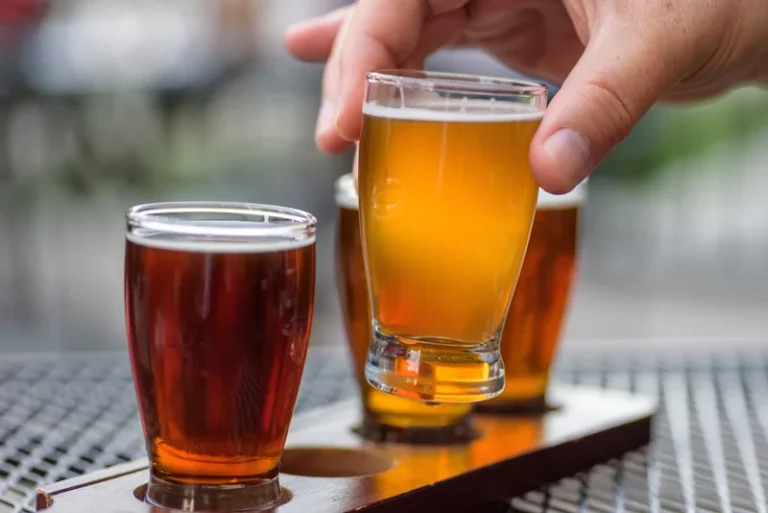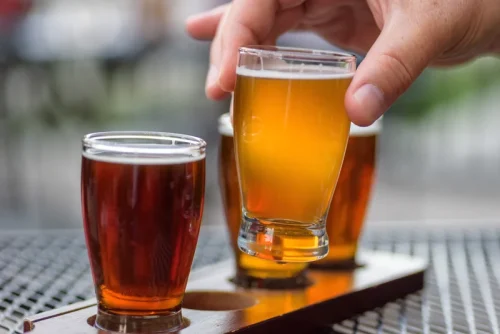
While these symptoms are typically acute and resolve as the withdrawal period progresses, they can be extremely uncomfortable and disruptive. Night sweats during alcohol withdrawal are largely due to the hyperactivity of the nervous system, which is common during this period. The body, in a state of heightened alertness and stress, increases its metabolic rate, increasing body temperature.

Alcohol and Sleep
If you notice these signs or have concerns about alcohol makes me sweat your drinking or any added health problems, speak to a doctor or mental health professional. They can help you determine if there is a problem and assist you in finding healthcare treatment programs. Drug rehab programs provide a structured environment and various therapies to help individuals overcome substance abuse and achieve long-term recovery.
- Learn how to qualify for inpatient physical rehab with comprehensive evaluations, medical criteria, insurance insights, goal setting, and discharge planning for optimal recovery.
- Discover who qualifies for free rehab centers and explore options for empowerment and support on your journey.
- Understanding the underlying cause of night sweats can help in effectively managing and reducing their occurrence.
Navigating Recovery: The Power of Fake it Until You Make it
One of the primary enzymes involved in alcohol metabolism is alcohol dehydrogenase (ADH). With commitment and the right resources, overcoming alcohol addiction is achievable. Seek help from qualified professionals to embark on your recovery journey. People experiencing mild night sweats from occasional alcohol consumption may find relief using home remedies.
Tips for Helping Someone with Substance Use Disorder
- Discover how inpatient rehab physical therapy helps patients regain independence through personalized care, expert support, and tailored treatments at top facilities.
- Medications help ease cravings and manage symptoms like night sweats.
- Discover how pets and rehab can transform lives through the healing power of animal therapy in recovery.
- Excessive sweating is one of the initial withdrawal symptoms along with insomnia, nausea and tremors as the body physiologically reacts to stopping alcohol consumption.
- For example, instead of saying «I want to drink less,» you might set a goal to only have one drink per day, or to go alcohol-free for a month.
Understanding these effects sheds light on why these discomforts happen and guides individuals on how to manage or mitigate them effectively. Reducing alcohol intake, adjusting the sleeping environment, and staying hydrated are practical steps that can help lessen the impact of night sweats caused by alcohol. Night sweats can ruin your sleep quality and leave you feeling tired the next day. While many people experience night sweats on occasion, it may be a sign of alcohol use disorder (AUD). Learn more about the relationship between alcoholic night sweats and heavy drinking. Further, individuals who drink heavily or regularly may experience night sweats as a common symptom of alcohol withdrawal.
- It’s crucial for individuals experiencing alcohol withdrawal to seek professional help, especially when symptoms are severe.
- Discover the difference between substance abuse treatment centers vs addiction treatment centers.
- Alcohol withdrawal can trigger a cascade of unpleasant symptoms, including night sweats.
- Night sweats, characterized by excessive sweating during sleep, can manifest across various parts of the body, including the face, chest, back, and arms.
For further reading on related topics, explore our articles on can you smoke while detoxing? You might also sweat after drinking due to having an intolerance to alcohol. Having an alcohol intolerance is a genetic condition where your body isn’t able to produce the enzymes it needs to break down toxins in alcohol.

Relationship Between Alcohol and Night Sweats
- Alcohol withdrawal can be severe and potentially life-threatening.
- The liver’s digestion of alcohol generates heat, and as blood alcohol levels rise, alcohol acts as a vasodilator, widening and relaxing blood vessels.
- Staying hydrated is crucial, especially when dealing with alcohol-induced night sweats.
- Treatment programs and support groups can offer the necessary resources and community understanding to navigate the detoxification process and beyond toward recovery.
Sweating usually starts within 6 to 48 hours after the last drink, depending on the person’s tolerance level for alcohol. A rise in metabolic rate can increase your body temperature, leading to sweating. Many people turn to alcohol as a way of coping with stress or difficult emotions. If you’re trying to cut back or quit drinking, it’s important to find alternative coping strategies to manage these feelings in a healthy way. This might involve learning relaxation techniques such as deep breathing or meditation, or finding physical activities that release tension and boost your mood, such as yoga or running.
Impactful Innovations: NIDAs Key Contributions to Drug Rehab

Discover the devastating three krokodil effects, from skin damage to mental health consequences. Explore the types of mental illnesses that lead to addiction, and effective integrated treatment approaches. Discover the difference between substance abuse treatment centers vs addiction treatment centers. Discover why an inpatient drug rehabilitation center isn’t always the answer; explore alternatives for recovery. Discover addiction help at PA rehabilitation centers, journey from darkness to recovery starts here.


The effects of alcohol on the body are wide ranging and include our central nervous system and circulatory system. When we drink alcohol, our heart rate increases and a process called vasodilation widens our blood vessels. Alcohol sweats, also known as night sweats, are a common withdrawal symptom that typically begins within hours to days after the last alcoholic drink. As the body rids itself of alcohol, it tries to regulate temperature, causing profuse sweating even in cool conditions.
They often start within 6-12 hours after your last drink and can last up to 4-5 Alcoholics Anonymous days or longer. The intensity peaks around hours as your body rids itself of the toxins. This article covers the possible causes of alcohol-related night sweats, including how to manage night sweats after drinking. We also look at the first signs of liver damage from alcohol and when to contact a doctor.